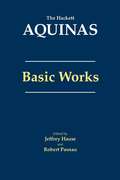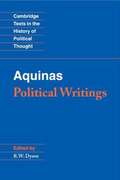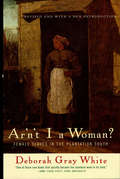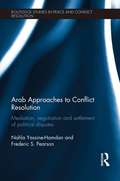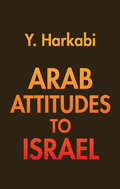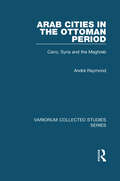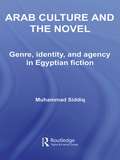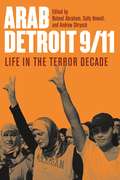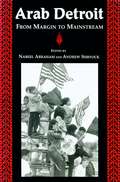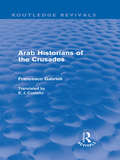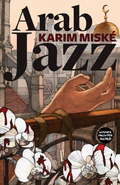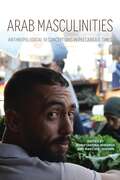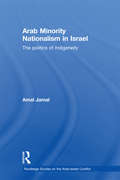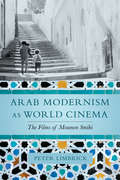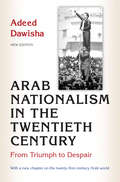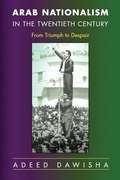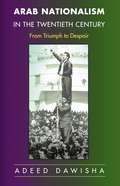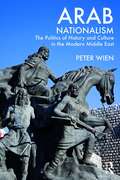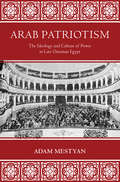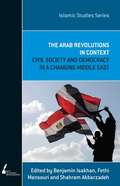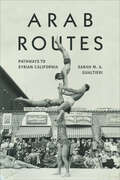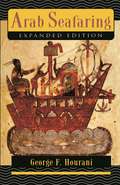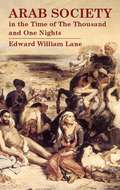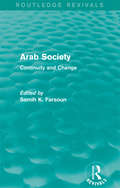- Table View
- List View
Aquinas: Basic Works (The Hackett Aquinas)
by Thomas Aquinas Robert Pasnau Jeffrey HauseDrawn from a wide range of writings and featuring state-of-the-art translations, Basic Works offers convenient access to Thomas Aquinas' most important discussions of nature, being and essence, divine and human nature, and ethics and human action.The translations all capture Aquinas's sharp, transparent style and display terminological consistency. Many were originally published in the acclaimed translation-cum-commentary series The Hackett Aquinas, edited by Robert Pasnau and Jeffrey Hause. Others appear here for the first time: Eleonore Stump and Stephen Chanderbahn's translation of On the Principles of Nature, Peter King's translation of On Being and Essence, and Thomas Williams' translations of the treatises On Happiness and On Human Acts from the Summa theologiae.Basic Works will enable students to immerse themselves in Aquinas's thought by offering his fundamental works without internal abridgements. It will also appeal to anyone in search of an up-to-date, one-volume collection containing Aquinas' essential philosophical contributions--from the Five Ways to the immortality of the soul, and from the nature of happiness to virtue theory, and on to natural law.
Aquinas: Political Writings
by Thomas Aquinas R. W. DysonThomas Aquinas (1225-1274) is an extremely influential figure in the history of Western thought and the Catholic church. In this major addition to the Cambridge Texts in the History of Political Thought series, Robert Dyson has translated texts by Aquinas that reflect the complete range of his thinking, and clearly show his development of a Christian version of the philosophy of Aristotle. His translations are supported by brief biographies, notes for further reading and a concise critical introduction.
Aquí hay dragones: La historia de La Diana I
by Florencia BonelliUna mujer extraordinaria, que atraviesa la siniestra Guerra de los Balcanes en los años 90 del siglo XX, trata de luchar contra sus fantasmas y encuentra la redención en el amor. La Diana, una mujer extraordinaria que lucha por alcanzar la redención Mariyana Huseinovic es una soldado de élite cuyo nombre de guerra es La Diana. Avezada en el uso de distintos tipos de armas y experta en las artes marciales, ella se define como una máquina para matar. Sin embargo, esconde un secreto que la vuelve vulnerable y débil, tanto como lo era a los veinte años cuando, al estallar la guerra en Bosnia, su tierra natal, se convirtió en víctima de los serbios nacionalistas y esclava en un campo de concentración. Pero La Diana ha decidido emprender su venganza y destrozar a los dragones que la convirtieron en esa mujer fría, llena de odio y dolor. Solo que el destino le tiene preparada una sorpresa y sus planes bien trazados tomarán otro camino. ¿Quizás el de la redención? Absorbente, ambiciosa y muy documentada, Aquí hay dragones es la esperadísima novela de Florencia Bonelli sobre uno de los personajes más queridos de la saga Caballo de fuego. Una novela repleta de acción, personajes y aventuras que reserva un espacio privilegiado para el amor. Una lectura que no se puede abandonar hasta la última página. Florencia Bonelli, con más de 3 millones de ejemplares vendidos solamente en la Argentina, vuelve a entregarnos su libro más ambicioso, más deseado y esperado por miles y miles de lectoras que aguardan sus novedades con expectativa y felicidad.
Ar'n't I a Woman?: Female Slaves in the Plantation South (Revised Edition)
by Deborah Gray White"This is one of those rare books that quickly became the standard work in its field. Professor White has done justice to the complexity of her subject."--Anne Firor Scott, Duke University Living with the dual burdens of racism and sexism, slave women in the plantation South assumed roles within the family and community that contrasted sharply with traditional female roles in the larger American society. This new edition of Ar'n't I a Woman? reviews and updates the scholarship on slave women and the slave family, exploring new ways of understanding the intersection of race and gender and comparing the myths that stereotyped female slaves with the realities of their lives. Above all, this groundbreaking study shows us how black women experienced freedom in the Reconstruction South -- their heroic struggle to gain their rights, hold their families together, resist economic and sexual oppression, and maintain their sense of womanhood against all odds.
Arab Approaches to Conflict Resolution: Mediation, Negotiation and Settlement of Political Disputes (Routledge Studies in Peace and Conflict Resolution)
by Frederic S Pearson Nahla Yassine-HamdanThis book examines Arab approaches to mediation, negotiation and settlement of political disputes. This book proposes that two clusters of independent variables are potentially responsible for the distinctive nature of Arab conflict resolution. Firstly, those linked with Arab political regimes and imperatives, and secondly those linked with Arab and /or Islamic culture. The text also focuses on the Arab League and its history of involvement in crisis and conflict situations, along with the roles of individual leaders, emissaries and extra-regional actors such as IGOs (Inter-Governmental Organisations) in undertaking mediation initiatives. IGO and Arab League activity has taken on new importance since the various intervention attempts in connection with the 'Arab Spring' since 2011. During the negotiation process, most Arab regimes tend to view conflicts within a broad historical context and Islamic culture prioritises the cohesion of the community and internal stability of the state over individual autonomy. This has created an authoritarian style of leadership, and in practice, leaders in the Middle East have had near absolute authority in the decision-making process—a fact which will have a lot of weight in conflict management and whether peace will endure for a long period of time. This book is unique in studying these clusters through comparative systematic case study analysis of events prior to and subsequent to the 'Arab Spring', augmented by a quantitative analysis of sample data on Arab disputes, compiled from a larger and newly augmented study comprising the years 1945-2000. Complementary data from the Uppsala Conflict Data Program’s (UCDP) data base of armed conflicts since 1975 is also utilized. This book will be of much interest to students of conflict resolution, peace and conflict studies, Middle Eastern politics and IR in general.
Arab Attitudes to Israel
by Yehoshafat HarkabiBecause of recent changes in the explicitly declared goals of Arabs in the Palestinian conflict, this book is of singular importance, and no scholar or expert on Middle East affairs can afford to ignore it. This work, by a scholar described as "the doyen of Israeli Arabists," is the result of vast research into the attitude of the Arabs toward Israel, manifested both in their declared, explicit aims and in ideological exegeses on the roots of the Palestinian problem. Approximately one hundred twenty books written by Arabs and the Arab press and radio are herein analyzed. Harkabi's searching examination is objective. His detection of consistent patterns in what at first seems amorphous is convincing. If there is such a thing as a science of political psychology, Harkabi is its master.
Arab Cities in the Ottoman Period: Cairo, Syria and the Maghreb (Variorum Collected Studies)
by André RaymondProfessor Raymond deals here with the evolution of the great Arab cities of the Ottoman period (1516-1800) - with questions of organisation, social life and the built space - looking in particular at Aleppo, Algiers, Constantine and, above all, at Cairo. These studies form part of a movement, in which the author’s work has played a significant role, aiming to re-examine the traditional Orientalist view of ’Muslim cities’. Contrary to the negative perception one so often finds, of decadent and chaotic towns, it can be seen that they had a coherent internal structure and that, far from being in decline, they enjoyed renewed prosperity in the Ottoman era, benefiting from the strength of the empire and flourishing Mediterranean trade. This in turn was reflected in the important and original architectural activity of the period.
Arab Culture and the Novel: Genre, Identity and Agency in Egyptian Fiction (Routledge Studies in Middle Eastern Literatures #Vol. 16)
by Muhammad SiddiqThis book explores the complex relationship between the novel and identity in modern Arab culture against a backdrop of contemporary Egypt. It uses the example of the Egyptian novel to interrogate the root causes – religious, social, political, and psychological – of the lingering identity crisis that has afflicted Arab culture for at least two centuries.
Arab Detroit 9/11: Life in the Terror Decade
by Andrew Shryock Nabeel Abraham Sally HowellSince the terrorist attacks of September 11, 2001, Detroit's large and nationally prominent Arab and Muslim communities have faced heightened prejudice, government surveillance, and political scapegoating, yet they have also enjoyed unexpected gains in economic, political, and cultural influence. Museums, festivals, and cultural events flourish alongside the construction of new mosques and churches, and more Arabs are being elected and appointed to public office. Detroit's Arab population is growing even as the city's non-Arab sectors, and the state of Michigan as a whole, have steadily lost population. In Arab Detroit 9/11: Life in the Terror Decade, a follow-up to their volume Arab Detroit: From Margin to Mainstream (Wayne State University Press, 2000), editors Nabeel Abraham, Sally Howell, and Andrew Shryock present accounts of how life in post-9/11 Detroit has changed over the last ten years.Abraham, Howell, and Shryock have assembled a diverse group of contributors whose essays range from the scholarly to the artistic and include voices that are Palestinian, Iraqi, Yemeni, and Lebanese; Muslim and Christian; American born and immigrant. The book is divided into six sections and begins with wide-angle views of Arab Detroit, looking first at how the community fits within greater Detroit as a whole, then presenting closer portraits of Arab Detroit's key ethnonational and religious subgroups. More personal, everyday accounts of life in the Terror Decade follow as focus shifts to practical matters such as family life, neighborhood interactions, going to school, traveling domestically, and visiting home countries. Finally, contributors consider the interface between Arab Detroit and the larger society, how this relationship is maintained, how the War on Terror has distorted it, and what lessons might be drawn about citizenship, inclusion, and exclusion by situating Arab Detroit in broader and deeper historical contexts.Readers interested in Arab studies, Detroit culture and history, transnational politics, and the changing dynamics of race and ethnicity in America will enjoy the personal reflection and analytical insight of Arab Detroit 9/11.
Arab Detroit: From Margin to Mainstream
by Andrew Shryock Nabeel AbrahamMetropolitan Detroit is home to one of the largest, most diverse Arab communities outside the Middle East, yet the complex world Arabic-speaking immigrants have created there is barely visible on the landscape of ethnic America. In this volume, Nabeel Abraham and Andrew Shryock bring together the work of twenty-five contributors to create a richly detailed portrait of Arab Detroit. The book goes behind the bulletproof glass in Iraqi Chaldean liquor stores. It explores the role of women in a Sunni mosque and the place of nationalist politics in a Coptic church. It follows the careers of wedding singers, Arabic calligraphers,restaurant owners, and pastry chefs. It examines the agendas of Shia Muslim activists and Washington-based lobbyists and looks at the intimate politics of marriage, family honor, and adolescent rebellion. Memoirs and poems by Lebanese, Chaldean, Yemeni, and Palestinian writers anchor the book in personal experience, while over fifty photographs provide a backdrop of vivid, often unexpected, images. In their efforts to represent an ethnic/immigrant community that is flourishing on the margins of pluralist discourse, the contributors to this book break new ground in the study of identity politics, transnationalism, and diaspora cultures.
Arab Historians of the Crusades (Routledge Revivals)
by Francesco GabrieliThe recapture of Jerusalem, the siege of acre, the fall of Tripoli, the effect in Baghdad of events in Syria; these and other happenings were faithfully recorded by Arab historians during the two centuries of the Crusades. First published in English in 1969, this book presents 'the other side' of the Holy War, offering the first English translation of contemporary Arab accounts of the fighting between Muslim and Christian. Extracts are drawn from seventeen different authors encompassing a multitude of sources: The general histories of the Muslim world, The chronicles of cities, regions and their dynasties Contemporary biographies and records of famous deeds. Overall, this book gives a sweeping and stimulating view of the Crusades seen through Arab eyes.
Arab Jazz
by Karim MiskéKosher sushi, kebabs, a second hand bookshop and a bar: the 19th arrondissement in Paris is a cosmopolitan neighbourhood where multicultural citizens live, love and worship alongside one another. This peace is shattered when Ahmed Taroudant's melancholy daydreams are interrupted by the blood dripping from his upstairs neighbour's brutally mutilated corpse. The violent murder of Laura Vignole, and the pork joint placed next to her, set imaginations ablaze across the neighborhood, and Ahmed finds himself the prime suspect. However detectives Rachel Kupferstein and Jean Hamelot are not short of leads. What is the connection between a disbanded hip-hop group and the fiery extremist preachers that jostle in the streets for attention? And what is the mysterious new pill that is taking the district by storm? In this his debut novel, Karim Miské demonstrates a masterful control of setting, as he moves seamlessly between the sensual streets of Paris and the synagogues of New York to reveal the truth behind a horrifying crime.
Arab Masculinities: Anthropological Reconceptions in Precarious Times (Public Cultures of the Middle East and North Africa)
by Laura Ferrero Alice Elliot Jamie Furniss Bård Helge Kårtveit Hsain Ilahiane Anne Hovgaard Jørgensen Gustavo Barbosa Sabiha Allouche Lisa L. WynnArab Masculinities provides a groundbreaking analysis of Arab men's lives in the precarious aftermath of the 2011 Arab uprisings. It challenges received wisdoms and entrenched stereotypes about Arab men, offering new understandings of rujula, or masculinity, across the Middle East and North Africa.The 10 individual chapters of the book foreground the voices and stories of Arab men as they face economic precarity, forced displacement, and new challenges to marriage and family life. Rich in ethnographic details, they illuminate how men develop alternative strategies of affective labor, how they attempt to care for themselves and their families within their local moral worlds, and what it means to be a good son, husband, father, and community member. Arab Masculinities sheds light on the most private spaces of Arab men's lives—offering stories that rarely enter the public realm. It is a pioneering volume that reflects the urgent need for new anthropological scholarship on men and masculinities in a changing Middle East.
Arab Minority Nationalism in Israel: The Politics of Indigeneity (Routledge Studies in Middle Eastern Politics)
by Amal JamalNational minorities and their behaviour have become a central topic in comparative politics in the last few decades. Using the relationship between the state of Israel and the Arab national minority as a case study, this book provides a thorough examination of minority nationalism and state-minority relations in Israel. Placing the case of the Arab national minority in Israel within a comparative framework, the author analyses major debates taking place in the field of collective action, social movements, civil society and indigenous rights. He demonstrates the impact of the state regime on the political behaviours of the minorities, and sheds light on the similarities and differences between various types of minority nationalisms and the nature of the relationship such minorities could have with their states. Drawing empirical and theoretical conclusions that contribute to studies of Israeli politics, political minorities, indigenous populations and conflict issues, this book will be a valuable reference for students and those in policy working on issues around Israeli politics, Palestinian politics and the broader Palestinian-Israeli conflict.
Arab Modernism as World Cinema: The Films of Moumen Smihi
by Peter LimbrickArab Modernism as World Cinema explores the radically beautiful films of Moroccan filmmaker Moumen Smihi, demonstrating the importance of Moroccan and Arab film cultures in histories of world cinema. Addressing the legacy of the Nahda or "Arab Renaissance" of the nineteenth and early twentieth century—when Arab writers and artists reenergized Arab culture by engaging with other languages and societies—Peter Limbrick argues that Smihi’s films take up the spirit of the Nahda for a new age. Examining Smihi’s oeuvre, which enacts an exchange of images and ideas between Arab and non-Arab cultures, Limbrick rethinks the relation of Arab cinema to modernism and further engages debates about the use of modernist forms by filmmakers in the Global South. This original study offers new routes for thinking about world cinema and modernism in the Middle East and North Africa, and about Arab cinema in the world.
Arab Nationalism in the Twentieth Century
by Adeed DawishaLike a great dynasty that falls to ruin and is eventually remembered more for its faults than its feats, Arab nationalism is remembered mostly for its humiliating rout in the 1967 Six Day War, for inter-Arab divisions, and for words and actions distinguished by their meagerness. But people tend to forget the majesty that Arab nationalism once was. In this elegantly narrated and richly documented book, Adeed Dawisha brings this majesty to life through a sweeping historical account of its dramatic rise and fall. Dawisha argues that Arab nationalism--which, he says, was inspired by nineteenth-century German Romantic nationalism--really took root after World War I and not in the nineteenth century, as many believe, and that it blossomed only in the 1950s and 1960s under the charismatic leadership of Egypt's Gamal 'Abd al-Nasir. He traces the ideology's passage from the collapse of the Ottoman Empire through its triumphant ascendancy in the late 1950s with the unity of Egypt and Syria and with the nationalist revolution of Iraq, to the mortal blow it received in the 1967 Arab defeat by Israel, and its eventual eclipse. Dawisha criticizes the common failure to distinguish between the broader, cultural phenomenon of "Arabism" and the political, secular desire for a united Arab state that defined Arab nationalism. In recent decades competitive ideologies--not least, Islamic militancy--have inexorably supplanted the latter, he contends. Dawisha, who grew up in Iraq during the heyday of Arab nationalism, infuses his work with rare personal insight and extraordinary historical breadth. In addition to Western sources, he draws on an unprecedented wealth of Arab political memoirs and studies to tell the fascinating story of one of the most colorful and significant periods of the contemporary Arab world. In doing so, he also gives us the means to more fully understand trends in the region today. Complete with a hard-hitting new and expanded section that surveys recent nationalism and events in the Middle East, Arab Nationalism in the Twentieth Century tells the fascinating story of one of the most colorful and significant periods in twentieth-century Middle Eastern history.
Arab Nationalism in the Twentieth Century: From Triumph to Despair
by Adeed DawishaLike a great dynasty that falls to ruin and is eventually remembered more for its faults than its feats, Arab nationalism is remembered mostly for its humiliating rout in the 1967 Six Day War, for inter-Arab divisions, and for words and actions distinguished by their meagerness. But people tend to forget the majesty that Arab nationalism once was. In this elegantly narrated and richly documented book, Adeed Dawisha brings this majesty to life through a sweeping historical account of its dramatic rise and fall. Dawisha argues that Arab nationalism--which, he says, was inspired by nineteenth-century German Romantic nationalism--really took root after World War I and not in the nineteenth century, as many believe, and that it blossomed only in the 1950s and 1960s under the charismatic leadership of Egypt's Gamal 'Abd al-Nasir. He traces the ideology's passage from the collapse of the Ottoman Empire through its triumphant ascendancy in the late 1950s with the unity of Egypt and Syria and with the nationalist revolution of Iraq, to the mortal blow it received in the 1967 Arab defeat by Israel, and its eventual eclipse. Dawisha criticizes the common failure to distinguish between the broader, cultural phenomenon of "Arabism" and the political, secular desire for a united Arab state that defined Arab nationalism. In recent decades competitive ideologies--not least, Islamic militancy--have inexorably supplanted the latter, he contends. Dawisha, who grew up in Iraq during the heyday of Arab nationalism, infuses his work with rare personal insight and extraordinary historical breadth. In addition to Western sources, he draws on an unprecedented wealth of Arab political memoirs and studies to tell the fascinating story of one of the most colorful and significant periods of the contemporary Arab world. In doing so, he also gives us the means to more fully understand trends in the region today.
Arab Nationalism in the Twentieth Century: From Triumph to Despair
by Adeed DawishaLike a great dynasty that falls to ruin and is eventually remembered more for its faults than its feats, Arab nationalism is remembered mostly for its humiliating rout in the 1967 Six Day War, for inter-Arab divisions, and for words and actions distinguished by their meagerness. But people tend to forget the majesty that Arab nationalism once was. In this elegantly narrated and richly documented book, Adeed Dawisha brings this majesty to life through a sweeping historical account of its dramatic rise and fall.Dawisha argues that Arab nationalism--which, he says, was inspired by nineteenth-century German Romantic nationalism--really took root after World War I and not in the nineteenth century, as many believe, and that it blossomed only in the 1950s and 1960s under the charismatic leadership of Egypt's Gamal 'Abd al-Nasir. He traces the ideology's passage from the collapse of the Ottoman Empire through its triumphant ascendancy in the late 1950s with the unity of Egypt and Syria and with the nationalist revolution of Iraq, to the mortal blow it received in the 1967 Arab defeat by Israel, and its eventual eclipse. Dawisha criticizes the common failure to distinguish between the broader, cultural phenomenon of "Arabism" and the political, secular desire for a united Arab state that defined Arab nationalism. In recent decades competitive ideologies--not least, Islamic militancy--have inexorably supplanted the latter, he contends.Dawisha, who grew up in Iraq during the heyday of Arab nationalism, infuses his work with rare personal insight and extraordinary historical breadth. In addition to Western sources, he draws on an unprecedented wealth of Arab political memoirs and studies to tell the fascinating story of one of the most colorful and significant periods of the contemporary Arab world. In doing so, he also gives us the means to more fully understand trends in the region today.
Arab Nationalism: The Politics of History and Culture in the Modern Middle East
by Peter WienArab nationalism has been one of the dominant ideologies in the Middle East and North Africa since the early twentieth century. However, a clear definition of Arab nationalism, even as a subject of scholarly inquiry, does not yet exist. Arab Nationalism sheds light on cultural expressions of Arab nationalism and the sometimes contradictory meanings attached to it in the process of identity formation in the modern world. It presents nationalism as an experienceable set of identity markers – in stories, visual culture, narratives of memory, and struggles with ideology, sometimes in culturally sophisticated forms, sometimes in utterly vulgar forms of expression. Drawing upon various case studies, the book transcends a conventional history that reduces nationalism in the Arab lands to a pattern of political rise and decline. It offers a glimpse at ways in which Arabs have constructed an identifiable shared national culture, and it critically dissects conceptions about Arab nationalism as an easily graspable secular and authoritarian ideology modeled on Western ideas and visions of modernity. This book offers an entirely new portrayal of nationalism and a crucial update to the field, and as such, is indispensable reading for students, scholars and policymakers looking to gain a deeper understanding of nationalism in the Arab world.
Arab Patriotism: The Ideology and Culture of Power in Late Ottoman Egypt
by Adam MestyanArab Patriotism presents the essential backstory to the formation of the modern nation-state and mass nationalism in the Middle East. While standard histories claim that the roots of Arab nationalism emerged in opposition to the Ottoman milieu, Adam Mestyan points to the patriotic sentiment that grew in the Egyptian province of the Ottoman Empire during the nineteenth century, arguing that it served as a pivotal way station on the path to the birth of Arab nationhood. Through extensive archival research, Mestyan examines the collusion of various Ottoman elites in creating this nascent sense of national belonging and finds that learned culture played a central role in this development. Mestyan investigates the experience of community during this period, engendered through participation in public rituals and being part of a theater audience. He describes the embodied and textual ways these experiences were produced through urban spaces, poetry, performances, and journals. From the Khedivial Opera House's staging of Verdi's Aida and the first Arabic magazine to the ‘Urabi revolution and the restoration of the authority of Ottoman viceroys under British occupation, Mestyan illuminates the cultural dynamics of a regime that served as the precondition for nation-building in the Middle East. A wholly original exploration of Egypt in the context of the Ottoman Empire, Arab Patriotism sheds fresh light on the evolving sense of political belonging in the Arab world.
Arab Revolutions in Context: Civil Society and Democracy in a Changing Middle East (Islamic Studies Series)
by Fethi Mansouri Shahram Akbarzadeh Benjamin IsakhanFrom late 2010 a series of dramatic and unprecedented events swept across the Middle East and North Africa, toppling several autocratic regimes that had held power for decades and ushering in a new climate of dissent and democratisation. The Arab Revolutions in Context seizes a unique opportunity to reflect on these seismic events, their causes and consequences, and the core issues facing the region as it moves forward. This volume is more than a collection of detailed thematic essays.It situates the Arab Revolutions within their broader contextual backgrounds—showing that a unique set of historical events, as well as local, regional and global dynamics, has converged to provide the catalyst that triggered the recent revolts-and also within a new conceptual framework. The argument here is that the Arab Revolutions pose a very specific challenge to conventional wisdom concerning democracy and democratisation in the Middle East. The Arab Revolutions in Context is the first volume of its kind to address the Arab Revolutions and the varying analyses, debates and discussions that they have stimulated. Islamic Studies Series - Volume 12
Arab Routes: Pathways to Syrian California (Stanford Studies in Comparative Race and Ethnicity)
by Sarah GualtieriLos Angeles is home to the largest population of people of Middle Eastern origin and descent in the United States. Since the late nineteenth century, Syrian and Lebanese migration, in particular, to Southern California has been intimately connected to and through Latin America. Arab Routes uncovers the stories of this Syrian American community, one both Arabized and Latinized, to reveal important cross-border and multiethnic solidarities in Syrian California. Sarah M. A. Gualtieri reconstructs the early Syrian connections through California, Texas, Mexico, and Lebanon. She reveals the Syrian interests in the defense of the Mexican American teens charged in the 1942 Sleepy Lagoon murder, in actor Danny Thomas's rise to prominence in LA's Syrian cultural festivals, and in more recent activities of the grandchildren of immigrants to reclaim a sense of Arabness. Gualtieri reinscribes Syrians into Southern California history through her examination of powerful images and texts, augmented with interviews with descendants of immigrants. Telling the story of how Syrians helped forge a global Los Angeles, Arab Routes counters a long-held stereotype of Arabs as outsiders and underscores their longstanding place in American culture and in interethnic coalitions, past and present.
Arab Seafaring: In the Indian Ocean in Ancient and Early Medieval Times - Expanded Edition
by George F. HouraniIn this classic work George Hourani deals with the history of the sea trade of the Arabs in the Indian Ocean from its obscure origins many centuries before Christ to the time of its full extension to China and East Africa in the ninth and tenth centuries. The book comprises a brief but masterly historical account that has never been superseded. The author gives attention not only to geography, meteorology, and the details of travel, but also to the ships themselves, including a discussion of the origin of stitched planking and of the lateen fore-and-aft sails. Piracy in the Indian Ocean, day-to-day life at sea, the establishment of ancient lighthouses and the production of early maritime guides, handbooks, and port directories are all described in fascinating detail. Arab Seafaring will appeal to anyone interested in Arab life or the history of navigation. For this expanded edition, John Carswell has added a new introduction, a bibliography, and notes that add material from recent archaeological research.
Arab Society in the Time of The Thousand and One Nights
by Edward William LaneElaborate, explanatory notes from the author's 1859 translation of the Arabian Nights comprise a virtual encyclopedia of Middle Eastern life. Intriguing account of Islamic society as it existed during the Middle Ages considers importance of religion, literature, festivals, education, slavery, role of women in society, and rituals observed for the dead.
Arab Society: Continuity and Change (Routledge Revivals)
by Samih K. FarsounThe Arab world has long been subjected to super-power rivalry for influence and control. The area has been characterized by bloody conflict with Israel and the internal instability that has been particularly prevalent in the last few years. Whilst these political struggles have been highly visible and at times spectacular over the decades, other transformations have taken place within the societies and peoples of the region, on a less pronounced – although just as profound – scale. The integration of the region into the world economy and the spread of Islamic revivalism are perhaps the most significant of these transformations. This volume, inspired by a lecture series on the Arab world in transition at the American University, Washington D.C., was first published in 1985. It discusses a wide range of issues, from economic to religious, which together form an in-depth analysis of the complex processes of transformation in Arab society. This is a fascinating work that holds the same interest and value to scholars and students of Middle Eastern history, politics and domestic affairs, as it did when it was first published.
